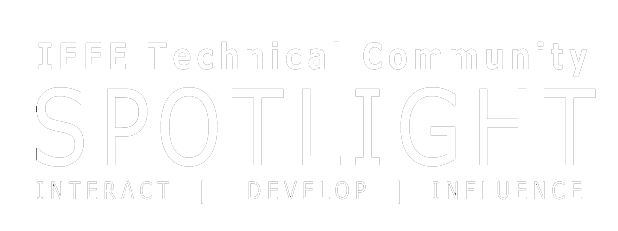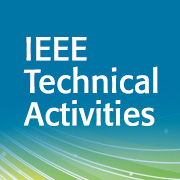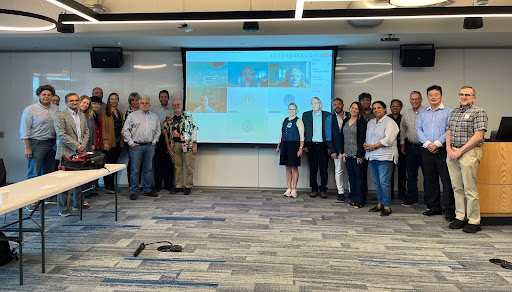
In the third quarter of this year, IEEE Technical Activities continues to focus attention and efforts on identifying and nurturing the evolving needs of our under-served segments such as underrepresented minorities, young professionals, and women, while supporting numerous emerging and interdisciplinary areas including entrepreneurship, ethics in technology, and the IEEE Future Directions initiatives.
We’ve renewed our commitment to an improved strategic vision and prioritized better communication between the Technical Activities Board and the IEEE’s other organizational units such as the Member and Geographic Activities, Educational Activities, and Publication Services and Products boards, the general IEEE membership, and beyond.
As part of the June OU Series, TAB held a one-day strategy session to facilitate discussion and forge relationships between groups that may not otherwise intersect. These groups included Society and Technical Council Presidents; members of the TAB Management Committee, the TAB Strategic Planning Committee, and the 2016 TAB AdHoc Committees; and key staff supporting TAB and its committees.
How can Technical Activities best serve the greater population of the IEEE by collaborating on a cross-organizational level? Join the discussion on IEEE CollabratecTM.
IEEE Collabratec sign up is free using your IEEE Account.
Participants were divided amongst 9 strategic focus areas identified by TAB :
- Education
- Women & Underserved Communities
- Membership
- Africa Activity
- Ethics, Society & Technology Activity
- Entrepreneurs and Young Professionals
- Creating Value for Industry
- New Style Events
- Global Office Strategy
They were then invited to bring these strategic areas of focus to life through assessment and action, with each group designing a potential roadmap for the next 2-3 years with actionable steps for execution before the end of 2016. Participants at each table were able to share with each other ways in which their Societies, Councils, and Committees had actively engaged with the table’s specific focus area. They then discussed how these activities could be replicated within other Societies, Councils, and Committees, or even scaled larger to engage all of Technical Activities and ultimately the entire IEEE. Each table was then invited to present their ideal vision of success and actionable roadmap to the approximately 90 other diverse participants in the TAB Strategic Session, and receive feedback from this larger pool of individuals.
This activity, though sponsored by TAB, truly served the greater population of the IEEE, as each of these focuses is important on a cross-organizational level. For example, at the Women and Underserved Communities table, participants shared activities that their Societies and Councils had implemented to engage women audiences within their units, such as sponsoring networking events at conferences, establishing committees within their S/Cs to empower women, developing travel grants and scholarships for women, and ensuring that women are visible as leaders within the S/C and represented as high-level volunteers. The group then discussed how similar activities could be implemented within TAB to engage more women to become first members, and then active leaders within the Technical Activities community. They also discussed ways in which TAB could collaborate with other boards across the IEEE such as the IEEE Women in Engineering program (governed by the Member and Geographic Activities Board) and within committees that report directly to the IEEE Board of Directors, such as Awards, Fellows, and Distinguished Lecturers. By working with the other parts of the organization to ensure that the leadership of the IEEE is representative of its membership, and by adding value for IEEE’s often underserved community of women, the group hoped to increase the presence of women not only in terms of membership, but in terms of developing a pipeline of women leaders to bring IEEE into the future.
And TAB’s numerous adhocs continue to work successfully with each other and across the IEEE to better accomplish the goals of all involved. This passion for collaboration often results in unexpected ideas, yielding positive results. There are many examples of this recently within TAB; however, a recent stand-out occurred in June, when, at the invitation of the Chair of the TAB AdHoc on Africa, Chairs of the IEEE Entrepreneurship AdHoc Committee went to Victoria Falls, Zambia to pilot an IEEE Entrepreneurship tutorial at the IEEE PES PowerAfrica Conference. The tutorial was organized not only to encourage engineers and non-engineers interested in starting their own businesses, but also to infuse some of the realities involved with entrepreneurial startups into the curriculum. Fifteen people from all over Africa and the United States attended the four-hour session.
In addition to learning the fundamentals, attendees divided into two teams to participate in an interactive startup idea session. Both teams presented great ideas for startups in Africa. The first team developed an idea for a GPS animal-tracking collar and an app that would allow people to spot wild game when visiting animal parks in Africa. This was targeted towards professional guide groups that take guests into game parks. The second team presented an idea to build on the use of a microgrid to supply electricity to the Ugandan islands of Lake Victoria. This team’s entrepreneurial idea would build a business that enables fishermen access to refrigeration and ice so their catch could stay fresh longer and not spoil.
Because of this successful IEEE Entrepreneurship pilot in Zambia, a new goal of the IEEE Entrepreneurship AdHoc is to develop this pilot into an Entrepreneurship Tutorial for other IEEE Society conferences, and also as a stand-alone event to work in collaboration with other groups such as the IEEE and TAB AdHocs on African Activities. Commitment to events such as these yields multifaceted results that epitomize the mission that TAB tries to accomplish: the Zambia event reached not only the up-and-coming segment of budding entrepreneurs, but did so in a region that is often underserved, while charging them to use emerging technologies in innovative ways to better their local communities.
By thinking in a more collaborative way, as demonstrated by these committees, TAB continues to help nurture diverse communities of engineers – in academia and industry; in remote locations and cities; of all ages and genders – within the IEEE and the greater profession of engineering.
Sincerely yours,
José M.F. Moura
2016 Technical Activities Vice President





